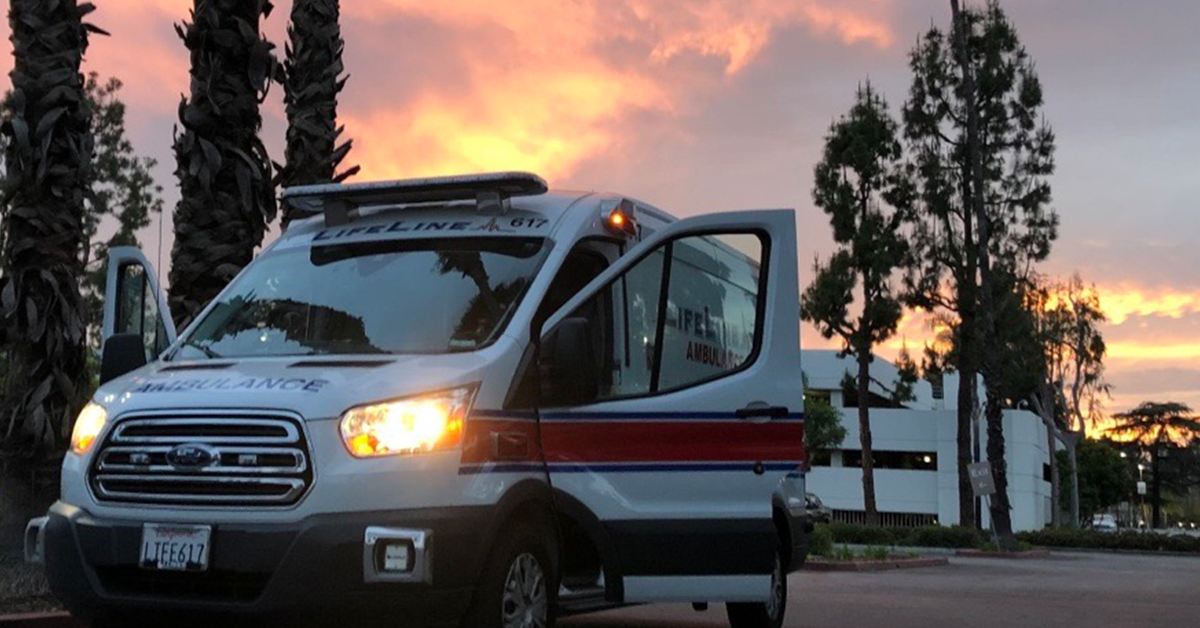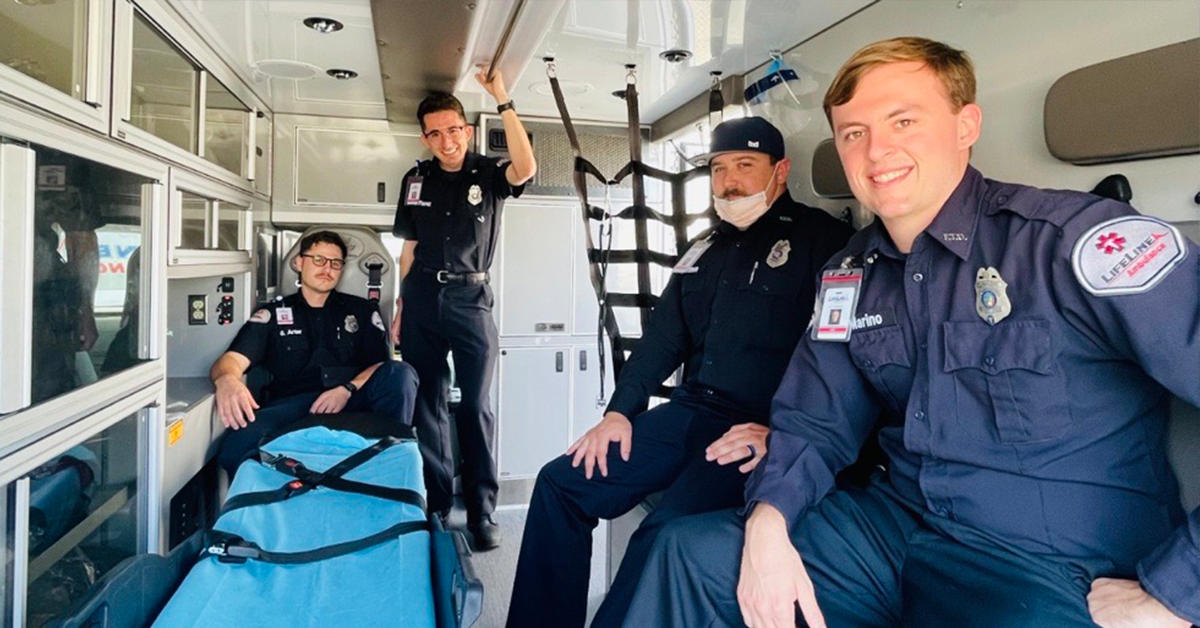For many aspiring law enforcement officers, the path to a successful career can take many forms. One of the most effective and beneficial routes is starting as an Emergency Medical Technician (EMT). This career choice not only provides invaluable experience and skills but also serves as a solid foundation for transitioning into law enforcement. LifeLine EMS in Los Angeles and Southern California offers a comprehensive environment that prepares individuals for this career trajectory. This article explores why starting as an EMT is the perfect pathway to law enforcement and how LifeLine EMS can set you on the right track.
The Role of an EMT
Before delving into why becoming an EMT is a great stepping stone for a law enforcement career, it’s essential to understand the core responsibilities and skills associated with this role.
Key Responsibilities of an EMT:
- Emergency Response: Arriving promptly at emergency scenes to provide immediate medical care.
- Patient Assessment: Quickly and accurately evaluating a patient’s condition to determine necessary treatment.
- Medical Interventions: Administering lifesaving treatments such as CPR, wound care, and medication.
- Patient Transport: Safely transporting patients to medical facilities while providing ongoing care.
- Communication: Coordinating with other healthcare providers and emergency responders to ensure seamless patient care.
Why Start as an EMT? The Benefits for Future Law Enforcement Officers
Starting as an EMT offers numerous benefits that are directly applicable to a career in law enforcement. Here’s why it’s a strategic choice:
1. Development of Critical Skills
EMTs develop a wide range of skills that are highly transferable and valued in law enforcement.
- Critical Thinking and Problem-Solving: EMTs frequently encounter high-pressure situations where quick, effective decision-making is crucial. This experience sharpens critical thinking and problem-solving skills, which are essential in law enforcement.
- Communication Skills: EMTs must communicate clearly and compassionately with patients, families, and other emergency responders. These communication skills are invaluable for law enforcement officers who need to interact effectively with the public and their colleagues.
- Stress Management: Managing stress and staying calm under pressure is a fundamental part of an EMT’s job. This ability to handle stressful situations smoothly is equally important in law enforcement.
2. Exposure to Emergency Situations
As an EMT, you will gain firsthand experience in emergency situations, preparing you for the unpredictable nature of law enforcement work.
- Handling Crises: EMTs are trained to manage various emergencies, from medical crises to traumatic injuries. This exposure to crisis management is beneficial for future law enforcement officers who will face similar high-stakes scenarios.
- Understanding of Public Safety: Working as an EMT provides a deep understanding of public safety and the critical role emergency responders play. This perspective is crucial for law enforcement officers committed to serving and protecting their communities.
3. Building Physical and Mental Resilience
The physical and mental demands of being an EMT build resilience, a trait that is highly advantageous in law enforcement.
- Physical Fitness: EMTs must maintain a high level of physical fitness to perform their duties effectively. This physical preparedness is equally important in law enforcement, where officers must often engage in physically demanding tasks.
- Mental Toughness: Dealing with traumatic and emotionally challenging situations as an EMT fosters mental toughness. This resilience is critical for law enforcement officers who must navigate the psychological stresses of their work.
4. Gaining Medical Knowledge
The medical knowledge and experience gained as an EMT can be a significant asset in law enforcement.
- First Aid and CPR Skills: Law enforcement officers are often the first to arrive at the scene of an emergency. Having EMT training ensures they can provide immediate medical assistance, potentially saving lives before additional help arrives.
- Understanding of Trauma Care: Knowledge of trauma care and emergency medical procedures allows law enforcement officers to better assess and manage situations involving injuries or medical emergencies.
How LifeLine EMS Prepares You for Law Enforcement
LifeLine EMS provides a comprehensive environment that equips aspiring law enforcement officers with the skills and experience needed for a successful transition. Here’s how:
Comprehensive Training Programs
LifeLine EMS offers extensive training programs designed to develop the essential skills needed for both EMS and law enforcement careers.
- Basic and Advanced Life Support Training: Training in CPR, AED usage, and advanced airway management.
- Specialized Training: Courses in pediatric care, trauma response, and disaster preparedness.
- Continuing Education: Opportunities for further education and certifications, supported by tuition reimbursement programs.
Real-World Experience
Working with LifeLine EMS provides invaluable real-world experience that is directly applicable to law enforcement.
- Hands-On Training: EMTs at LifeLine EMS gain practical experience through clinical rotations in hospitals and ride-alongs with experienced professionals.
- Exposure to Diverse Scenarios: The diverse nature of emergencies in Los Angeles and Southern California ensures that EMTs encounter a wide range of situations, preparing them for the unpredictable nature of law enforcement work.
Supportive Work Environment
LifeLine EMS fosters a supportive and collaborative work environment that enhances professional development.
- Mentorship Programs: New EMTs are paired with experienced mentors who provide guidance and support.
- Team Building: Regular activities and events promote camaraderie and strengthen team dynamics.
- Open Communication: Regular meetings and feedback sessions ensure employees’ voices are heard and their concerns addressed.
Career Advancement Opportunities
LifeLine EMS is committed to the professional growth of its employees, offering numerous opportunities for career advancement.
- Leadership Development Programs: Designed to prepare EMTs for supervisory and managerial roles.
- Internal Promotions: Prioritizing internal candidates for advanced positions such as field training officers and supervisors.
- Pathways to Higher Medical Roles: Supporting transitions to roles such as paramedics, nurses, and healthcare administrators.
Keep Reading
Want more? Here are some other blog posts you might be interested in.
Emergency Medical Services s a high-stress, physically demanding profession that requires dedication, quick decision-making, and resilience. While the rewards of saving lives...
Emergency Medical Services professionals are often the first point of contact during critical health crises. While technical expertise is essential in emergency...
Emergency Medical Services play a critical role in ensuring the health and safety of communities. In Southern California, including Los Angeles, the...






